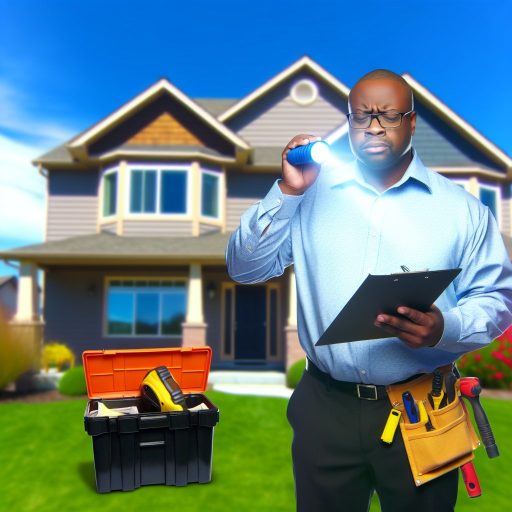Understanding the Importance of Maintenance Cost Management in Rental Properties
Defining Maintenance Costs
Maintenance costs encompass all expenses related to property upkeep.
These can include routine repairs, emergency fixes, and preventive maintenance.
Landlords must recognize these costs to budget effectively.
Impact on Profitability
Managing maintenance costs directly influences a rental property’s profitability.
Neglecting maintenance can lead to larger, unexpected expenses.
On the other hand, proactive maintenance can enhance property value.
Tenant Satisfaction
Effective maintenance management leads to higher tenant satisfaction.
A well-maintained property attracts and retains quality tenants.
Happy tenants are likely to renew leases and refer others.
Legal and Safety Obligations
Landlords have legal duties to maintain safe living conditions.
Failure to manage maintenance may result in legal issues or fines.
Additionally, proper maintenance minimizes hazards for tenants.
Long-Term Asset Value
Routine maintenance extends the life of major systems and appliances.
This approach protects the long-term value of the investment property.
Regular updates can also keep properties competitive in the market.
Budgeting for Maintenance Costs
Creating a maintenance budget is crucial for property management.
Landlords should set aside a percentage of rental income for these costs.
Consider both expected and unexpected repairs in financial planning.
Establishing a Maintenance Schedule
A proactive maintenance schedule helps mitigate future problems.
Routine checks can identify issues before they escalate.
Landlords should document maintenance activities for reference.
Identifying Common Maintenance Costs Associated with Rental Properties
Recurring Maintenance Costs
Recurring maintenance costs are essential for rental property upkeep.
These include regular inspections and maintenance tasks.
Examples include HVAC servicing, plumbing checks, and landscaping.
Property owners must budget for these recurring expenses annually.
Emergency Repairs
Unexpected emergencies often lead to significant repair costs.
Examples include plumbing leaks, electrical failures, and roof damage.
Property owners should maintain a reserve fund for emergencies.
This fund helps cover urgent repairs without disrupting finances.
Tenant-Requested Repairs
Tenants may request repairs that impact their living conditions.
Common issues reported include broken appliances or heating problems.
Responding promptly can enhance tenant satisfaction and retention.
Owners should document all tenant requests for future reference.
Routine Property Improvements
Improving property features may lead to increased rent and value.
Upgrades might include new appliances, fresh paint, or flooring.
While these are not mandatory, they can attract quality tenants.
Balance costs against potential revenue increases when planning.
Seasonal Maintenance Tasks
Certain maintenance tasks arise seasonally throughout the year.
Examples include gutter cleaning, snow removal, and landscaping.
Addressing these tasks can prevent more significant repairs later.
Property owners should create seasonal maintenance checklists.
Developing a Maintenance Cost Budget
Understanding the Importance of a Budget
Creating a maintenance cost budget is essential for rental property owners.
This budget helps you anticipate future expenses effectively.
It also allows for better financial planning and stability.
Identifying Key Components of the Budget
Start by listing all potential maintenance tasks.
Consider both routine and unexpected repairs.
Common tasks include plumbing, electrical, and HVAC repairs.
It’s helpful to consult with professionals for accurate estimates.
Evaluating Past Maintenance Expenses
Review historical maintenance data from your properties.
This information helps identify trends and recurring issues.
Documenting past expenses improves future budgeting accuracy.
Establishing a Contingency Fund
A contingency fund is crucial for unexpected expenses.
Typically, allocate 10% to 20% of your total maintenance budget.
This cushion helps cover emergencies without financial strain.
Regular Maintenance vs. Emergency Repairs
Understand the difference between regular maintenance and emergencies.
Regular maintenance costs are predictable and should be budgeted annually.
Emergency repairs can occur suddenly and need immediate attention.
Adjusting the Budget Periodically
Your budget should be flexible and adjustable over time.
Regularly review and revise the budget based on actual expenses.
Stay informed about market changes and local property regulations.
Utilizing Technology for Budget Management
Consider using budgeting software to streamline your processes.
Many tools help track expenses and forecast future costs effectively.
Automation saves time and reduces the likelihood of errors.
You Might Also Like: Analyzing Market Demand To Make Informed House Flipping Decisions
Using Historical Data to Estimate Future Maintenance Costs
The Importance of Historical Data
Historical data offers a valuable insight into maintenance expenses.
This data helps property owners project future costs accurately.
Moreover, it identifies patterns that may emerge over time.
Gathering Historical Maintenance Data
Start by compiling records of past maintenance activities.
Include costs related to repairs, routine services, and emergencies.
Utilize receipts, invoices, and maintenance logs for comprehensive data.
Analyzing Past Expenses
Review your collected data to identify expense trends.
Look for common repairs that recur regularly.
Evaluate the frequency and cost of these repairs to gauge future needs.
Strategies for Accurate Estimates
Consider using a percentage of annual rental income for estimates.
This percentage generally ranges from five to ten percent.
Additionally, incorporate local market trends and property age into calculations.
Budgeting for Unexpected Repairs
Always allocate a reserve fund for unanticipated maintenance costs.
Experts recommend setting aside about one percent of the property value annually.
This practice ensures you’re prepared for emergencies when they arise.
Adjusting Estimates Over Time
Regularly revisit and revise your maintenance estimates.
As properties age, expenses may increase unexpectedly.
Stay informed about changes in local maintenance costs and labor rates.
Find Out More: Best Strategies For Marketing Your Rental Property To Potential Tenants
Creating a Schedule for Regular Maintenance and Inspections
The Importance of Regular Maintenance
Regular maintenance helps preserve property value.
It also reduces unexpected repair costs.
Moreover, it enhances tenant satisfaction.
Establishing a Maintenance Schedule
Start by identifying key maintenance tasks.
Include tasks such as HVAC servicing, plumbing checks, and landscaping.
Create a calendar based on seasonal needs.
For example, schedule roof inspections in the fall.
Next, assign frequencies for each task.
Some tasks may require monthly attention.
Others might be performed quarterly or annually.
Documenting the Schedule
Use a digital tool to document the maintenance schedule.
Spreadsheet programs like Excel are quite effective.
Consider utilizing property management software if available.
This keeps the schedule accessible and organized.
Communicating with Tenants
Inform tenants about maintenance schedules upfront.
Share dates and expected disruptions in advance.
Encourage tenants to report issues promptly.
This boosts accountability and fosters good relations.
Reviewing and Adjusting the Schedule
Regularly review the effectiveness of your maintenance schedule.
Take tenant feedback into account during evaluations.
Adjust the schedule based on frequency of issues.
Make sure to update documentation accordingly.
Find Out More: Strategies To Minimize Risks And Maximize ROI In House Flipping

Strategies for Reducing Maintenance Costs without Compromising Quality
Conduct Regular Inspections
Regular inspections can identify issues early.
Addressing problems promptly prevents costly repairs later.
Develop a routine schedule for property assessments.
Check for common maintenance concerns, such as leaks and electrical issues.
Engaging a professional inspector can provide valuable insights.
Invest in Quality Materials
Using high-quality materials may seem costly initially.
However, they often last longer and need less maintenance.
Prioritize durable options for major installations.
Examples include roofs, flooring, and plumbing fixtures.
Assess long-term savings when choosing materials.
Implement Preventive Maintenance Plans
A preventive maintenance plan can save significant costs.
This approach focuses on regular upkeep and timely repairs.
Schedule services for HVAC systems, plumbing, and electrical work.
Additionally, maintain appliances and ensure they operate efficiently.
Document all maintenance activities to track progress and effectiveness.
Utilize Technology for Efficiency
Technology can streamline maintenance management.
Property management software can help you track issues easily.
Consider using apps for tenant reports and service requests.
These tools facilitate timely responses and accountability.
Moreover, they can reduce human error in scheduling and follow-ups.
Negotiate with Service Providers
Negotiating with service providers can lower costs.
Establish long-term relationships with reliable contractors.
Ask for discounts or bundled service rates to save on expenses.
Compare quotes from different vendors for competitive pricing.
Always weigh the cost against the quality and reliability of service.
See Related Content: How To Calculate Cash Flow For Rental Property Investments
Implementing Technology Solutions for Maintenance Cost Tracking and Management
Adopting Property Management Software
Property management software simplifies tracking maintenance costs.
It allows landlords to log repairs and associated expenses easily.
Moreover, software solutions provide a centralized platform for all data.
This feature enhances organization and efficiency in managing properties.
Utilizing Maintenance Request Apps
Maintenance request apps improve communication with tenants.
These tools enable tenants to report issues in real-time.
Additionally, they help prioritize and assign maintenance tasks quickly.
This leads to faster responses and happier tenants overall.
Implementing IoT Devices for Monitoring
Internet of Things (IoT) devices streamline maintenance tracking.
These smart devices monitor essential systems in rental properties.
For instance, they can track HVAC or plumbing performance continuously.
As a result, landlords can address problems before they escalate.
Analyzing Data for Cost Management
Data analytics tools provide insights into maintenance trends.
Landlords can assess which repairs occur frequently.
Furthermore, this analysis helps in predicting future costs effectively.
In turn, property owners can create budget forecasts with better accuracy.
Maintaining Digital Records
Digital record-keeping ensures easy access to maintenance history.
This practice aids landlords in understanding past expenses and repairs.
As a result, they can make informed decisions about future maintenance.
Efficient record-keeping reduces the likelihood of duplicated work.
Integrating Budget Tracking Tools
Budget tracking tools help landlords monitor overall maintenance budgets.
These tools assist in identifying overspending on repairs or services.
Additionally, they can signal when adjustments to budgets are necessary.
This proactive approach avoids surprises at the end of the year.
Building a Relationship with Reliable Contractors and Service Providers
Identifying Reliable Contractors
Start by researching local contractors thoroughly.
Read online reviews to gauge their reliability and service quality.
Ask for recommendations from other property owners or real estate agents.
Interview multiple contractors to compare their expertise and pricing.
Request references and follow up with previous clients.
Establishing Clear Communication
Communicate your maintenance needs clearly from the beginning.
Set expectations regarding response times and project timelines.
Maintain open lines of communication throughout every project.
Use tools like email or project management software for updates.
Negotiating Contracts
Always draft a detailed contract before starting any work.
Include project specifics, costs, and timelines in the contract.
Discuss payment terms and avoid large upfront payments.
Review cancellation policies to understand your options.
Building Long-Term Relationships
Try to work with the same contractors for consistency and trust.
Provide feedback on their performance to help them improve.
Offer incentives for reliable work, like bonuses for efficiency.
Invite contractors to discuss future maintenance plans regularly.
Evaluating Performance
Assess contractor performance after each project is completed.
Keep a record of their work quality and adherence to deadlines.
Share your evaluations with them for constructive feedback.
Use these evaluations to inform future decisions on hiring.
Additional Resources
Vacant and Abandoned Properties: Turning Liabilities Into Assets …
What does economic evidence tell us about the effects of rent control?




